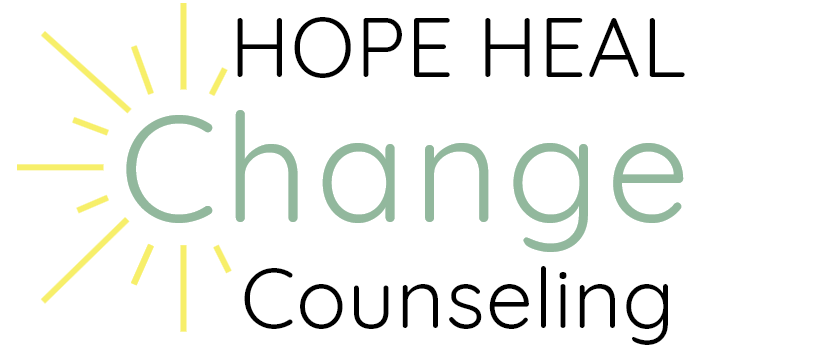
A quick Google search of “therapists near me” will quickly lead you to a website called Psychology Today. There you can scroll through an endless list of therapists, psychologists and social workers. All of their bios sound somewhat the same. They provide a “non-judgmental safe-space where client and clinician can explore the difficult challenges of life.” They, “use CBT, mindfulness, and person-centered therapy to assist the client in empowering themselves and living a happier, more fulfilled life.” I’m not knocking these people or their bios… mine sounds something like that. Ultimately, we have to take our best and most intuitive guess as to which professional will be the best fit. But how can you tell if you have a skilled and fantastic therapist upon the beginning parts of therapy?
Below are 5 signs you picked a great therapist. (Hint: I saved my most important one for number 5). There are several other characteristics and factors that make up great therapists. I trimmed my list to 5 to make it an easy ride and to keep it fairly simple.
Let me preface my list with three disclaimers:
- 1) You might not see all 5 of these in the first session or even in the first 3 sessions. A great therapist will focus on building rapport. They’ll lean into their people and listening skills at first, so give it time;
- 2) Even if a lot of my list is present, there is some metaphysical factor that is hard to measure. Use your intuition and gut a little bit to determine who the right person for you is; and
- 3) This list, is of course, merely my opinion.
1. The therapist isn’t afraid of giving you feedback, offering confrontation, or receiving feedback
Someone once asked me if going to a therapist is like paying a friend to listen. That’s a fair thing to wonder, especially because some therapists are more passive and tend to lean on offering the client a lot of validation and support. In my mind, that’s not enough. At the University, I tell my students the difference between a friend and a therapist is this: A friend offers a lot of support and very little challenge or confrontation, whereas a therapist offers a lot of both. A friend might challenge us or confront us by saying something like, “Hey, you hurt my feelings last week,” but friends are mostly there to lend support and validation. A person breaks up with their partner and a friend says, “Yeah! They don’t deserve you! It’s their loss!” That can be helpful and feel good. A great therapist will explore the loss of the relationship and identify areas where their client can grow.
Moreover, a great therapist knows how to offer their feedback with specificity and compassion. So, if your therapist sometimes confronts, challenges or pushes you—good. Lastly, if you provide some sort of feedback to the therapist, a skilled one will use that feedback as therapy. Perhaps you share your frustration with the lack of progress you feel like you’re making in sessions. An un-skilled therapist might become defensive and upset. A wonderful therapist will say something like, “I can sense that frustration throughout our session. Feeling like you’re not making progress must be frustrating. How do you handle frustration and stress in the day to day? What’s is like to be let down by this? Are there other parts of your life where you feel stuck? Who do I remind you of outside of this room?”
2. The therapist is able to admit when they don’t know the answer.
Therapists shouldn’t know all the answers. That’s because none of us do. It can be easy to fall into the trap of pretending to know. We all do this—pretend to know—because knowing provides us comfort. Humans are very good at convincing themselves how knowledgable they are. However, submitting to the reality of how little we know can be very freeing. If your therapist seems to have all the answers, that could be a red flag. If they give life advice, I’m skeptical of their therapeutic skills. Sometimes my clients will ask a question and I respond with, “If I gave you an answer, it would merely be me pretending to know an answer in an effort to soothe one of us. But I’d love to explore this topic more and I’m curious to understand your desire to have an answer there,” or something along those lines.
I can sometimes sense clients getting agitated when I’m not overly direct in my feedback. But a good therapist knows that there job is to help clients find the intelligence within themselves and demonstrate how to problem solve through complicated or challenging problems. Plus, if my advice doesn’t go well, are you coming back? With all that said, clinicians can be direct about therapeutic tools and can be expected to have exceptional and expert skill in the way of knowing how to problem solve and process while asking the best questions.
3. The therapist invests time in understanding your childhood and attachment style
While not every day-to-day struggle has to do with our childhood and upbringing; how we generally behave and interact in the world does. Therefore, a therapist that invests some time in understanding what your upbringing is like is important. Some of the things they’ll be looking for: what familial messages were sent about things like worth and love, what were the core values in the family, how conflict was handled in the household, if it was safe to openly express yourself, what attachment style most resonates with you, etc. These are the things that can help the client and therapist unlock the answers to solving many present day-to-day issues and concerns. We can start to symbolize people in our current life with the past to understand how we relate and connect with them.
4. The therapist promotes equal flow of conversation
I’m a big believer that the flow of conversation should be pretty equal between therapist and client. In the beginning, it might be normal for the client to do a lot of the talking as their sharing their content; however, as sessions start to settle in, a great therapist will promote a back and forth dialogue because that’s what healthy relationships look like outside of the therapy office. While the relationship can feel a bit one way (client shares a lot about their life and therapist doesn’t share hardly anything about theirs), the clinician should be reflecting feeling, asking good open-ended questions, helping client identify feelings and meanings and offering specific feedback/reflection. Then there should be a space for the client to think and respond and so on. A big complaint I hear from my clients is that their last therapist “Just sort of sat there” and they felt off-put by having to come up with the things to say every session. Some therapists would say that that’s why the client is there—to lead the way and do the talking. And there are times were I let silence befall and let client lead, but not at the risk of my client feeling off-put. Equality is the way.
5. The therapist consistently and persistently attends to the space between clinician and client
My most personal and most favorite item on the list. In my mind, you’ve picked a great therapist if they consistently and persistently check in on the relationship and space in between the two of you. They might even ask, “where are you and I at?” For some clients, this can be strange at first. But the therapeutic alliance is one that, if built well, can be a great way to give and receive feedback with love and compassion (not an opportunity we often come by). It generally energizes the session and the therapist usually does this by sharing a “here and now” feeling with the client to promote feedback. Let me give you a couple of examples as it’s hard to explain without one:
“Mary, I feel distant from you today and noticed that when I asked questions about your family, you looked away more than usual. Where are we at today?”
Or
“Sue, as you tell your story, I can’t help but to feel protective of you and I can feel my frustration and anger rising. I’m wondering what it means to you that I’m getting upset. I’m also wondering what’s going on with you.”
Or
“It seems like we are really locked in together today, Alex. What’s working in our relationship to have such synergy?”
Hopefully the examples are helpful in understanding what this looks like. By the clinician checking in on this, it gives space for growth and exploration within relationship. And after all, therapy is about two people in a room figuring stuff out. And leveraging the therapeutic relationship might be the best tool.
Now remember, this is list is just my opinion. And with that, I could easily add a few more items to the list like the therapist knows how to set boundaries, the therapist understands how loss is a big part of life and knows how to navigate that, the therapist demonstrates a the 5 main counseling skills, etc. However, if you try out a few sessions of therapy and you’re seeing a lot of the above being used and leveraged I think you’re sitting with a quality and skilled therapist.
Going to therapy can be intimidating. My hope is this list gives you something to lookout for as you enter into your mental health journey. If you have more questions about my list, please feel free to reach out! Happy Autumn!

Congratulations on this fine piece of writing, Josh. These insight should make a huge difference to anyone ready to up their wellness game.
Professor Armstrong! I’m honored that you found my piece of writing and then took the time to praise it. Your writing courses (my first college class was yours) were so enjoyable and shaped me as a writer! I sincerely hope you are well!